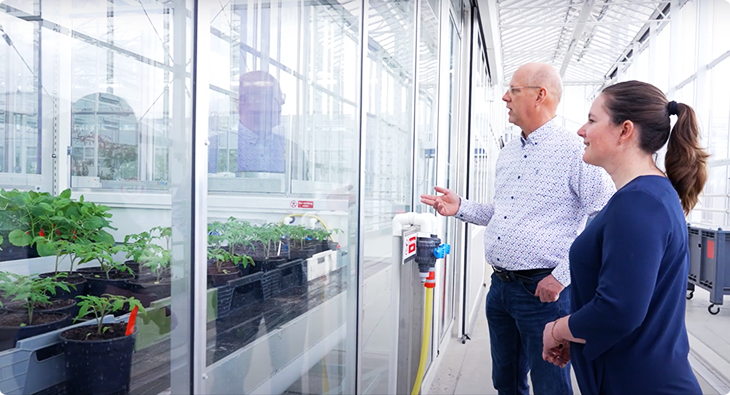Hear from scientists at Prime Diagnostics about their use of multiplex testing to keep plants healthy
In the Netherlands, a special division of Wageningen University & Research has been helping monitor flora for plant pathogens for the past 20 years. Known as Prime Diagnostics, Wageningen University’s team of scientific experts develops, validates, and commercializes testing kits to identify pathogens in economically important plants such as crops and garden flowers.

In 2007, Prime Diagnostics became a Luminex Licensed Technologies Partner. Scientists at Prime Diagnostics understood that xMAP® Technology continues to provide an efficient and effective foundation for multiplex tests. Today, Prime Diagnostics offers more than 100 xMAP-based kits for pathogen detection in plants.
In the short, new video included below, Prime Diagnostics team members discuss their mission of improving human quality of life by exploring the potential of nature. “The goal of Prime Diagnostics is to assist in feeding the world with healthy plants in a sustainable way,” says Jan Bergervoet, a senior researcher at the lab. “We do this by supplying reagents and kits for the detection of plant pathogens [including] viruses, bacteria, and fungi.” xMAP Technology makes it possible to perform more tests in less time and to be more flexible in addressing client needs.
The team typically serves clients in the horticultural and agricultural industries as well as government laboratories with their xMAP-based pathogen detection tests. Working closely with their customers allows them to “guarantee state-of-the-art solutions,” says José van Beckhoven, manager at Prime Diagnostics. The scientists have also developed an analysis package specifically for xMAP data to better support their clients.
Detecting and Identifying Plant Pathogens With xMAP® Technology:
To learn more, check out our profile of Prime Diagnostics or see their information page about building kits from xMAP Technology.
